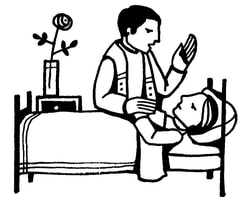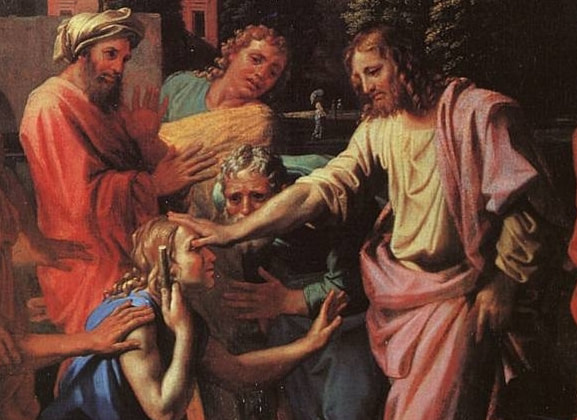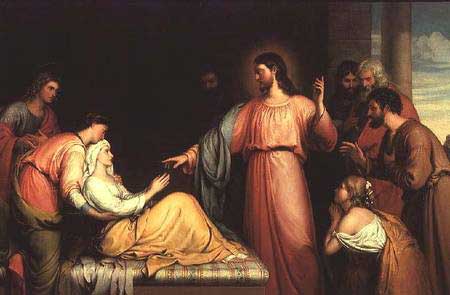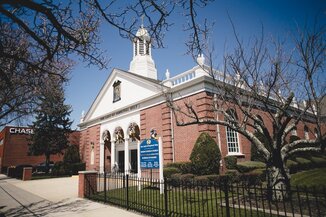Sacrament of the Anointing of the Sick
|
The Sacrament of the Anointing of the Sick is truly one of the most beautiful sacraments the Church celebrates. Fortunately, we have moved away from an understanding of the sacrament which associates it only with the moment of death (i.e., “Last Rites”). Today the Church, as a result of the liturgical reforms of Vatican II, has recovered the earliest and original tradition of this sacrament — namely, that anointing is intended for those who are seriously ill, and not only for emergency situations. (Actually, it is the Eucharist, as Viaticum, or “food for the journey,” which is the proper sacrament for those who are close to the moment of death.)
As such, the Sacrament of the Anointing of the Sick is a beautiful celebration of the care, comfort, and wholeness God offers us in times of illness. The experience of God's care is brought to us through the sacramental signs of imposition of hands, anointing with holy oil, and prayers over the sick person. The celebration of this sacrament has an effect not just on the sick person, but on all the community members who participate in it. The care and concern of the community is a sign to the sick person of the Lord’s own great concern for the bodily and spiritual welfare of the sick. The communal celebration of the Anointing of the Sick is a ritual moment which makes visible and present to the sick, and to the whole community, who we are as Church: we are a community of mutual healing and support. The sick persons themselves are also a sign. They are a sign to the community of the essential, or higher things; by their witness, they show forth the mystery of Christ's suffering for the salvation of the world, and how our lives are redeemed through the mystery of Christ's death and resurrection.
Vertical Divider
|
Who may be anointed? The sacrament is for baptized Catholics who are seriously ill, specifically those who begin to be in danger due to sickness or old age. It is also for those who will be going into the hospital for surgery. In fact, the appropriate time to be anointed is at the beginning of a serious illness and/or before one enters the hospital for surgery. People may be anointed again if they fall into a more serious crisis during the same illness or if, after recovery, they develop a serious illness again.
Also, elderly people may be anointed if they have become notably weakened, even though no serious illness is present, although elderly persons should not be anointed simply because of their age (e.g., those who are in good health should not be anointed just because they have attained a certain number of years).
Sick children may be anointed if they have sufficient use of reason to be strengthened by this sacrament; canon law presumes that use of reason begins at age seven. If you have any question as to whether you or a loved one should be anointed, please feel free to discuss it with one of the priests. In general, on the one hand, the sacrament may and should be given to anyone whose health is seriously impaired; on the other hand, it may not be given indiscriminately to a person whose health is not seriously impaired or repeatedly given to a person whose health has not worsened since the last anointing. Please avail yourself of the sacrament if you are in need of it due to illness or because you will be entering the hospital for surgery. |




